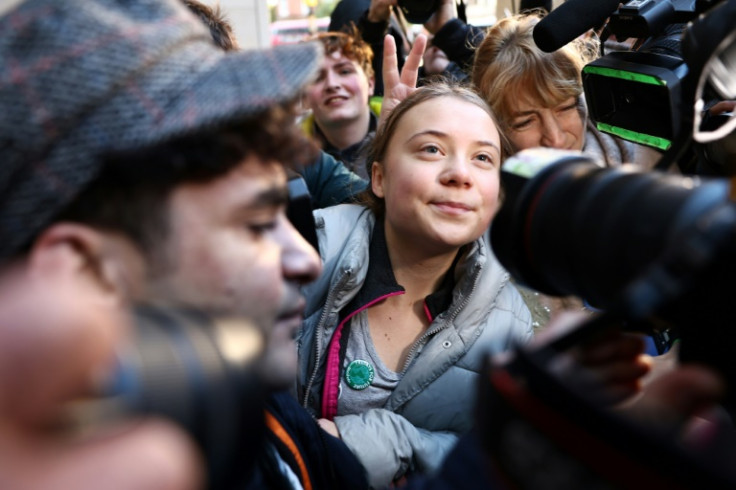
A judge has dismissed the case against environmental activist Greta Thunberg and other protesters who participated in the climate demonstration that took place in London last month.
The decision has sparked debates about the right to peaceful protest and the urgency of addressing climate change.
The protesters, including Thunberg, were initially facing charges related to public order offences and obstructing highways during their demonstration that brought parts of central London to a standstill.
Thunberg was charged alongside Christofer Kebbon, Joshua James Unwin, Jeff Rice and Peter Barker with "failing to comply with a condition imposed under section 14 of the Public Order Act".
They had been taking part in a protest outside the InterContinental hotel in Mayfair, the venue for the Energy Intelligence Forum (EIF), a fossil fuel industry summit attended by corporate executives and government ministers.
All were arrested after the senior officer at the scene enacted the section 14 order to impose conditions on the protest, which had blocked access to and from the hotel for guests and EIF delegates.
At the conclusion of the prosecution case, the second day of their trial at Westminster Magistrates Court, Judge Laws agreed that the crown had failed to present enough evidence to prove their case.
Laws asserted that the conditions placed upon protesters were "so unclear that it is unlawful," rendering "anyone failing to comply [to be] actually committing no offence."
The judge emphasised that the protest remained "throughout peaceful, civilised and non-violent."
Furthermore, he criticised the evidence presented by the prosecution regarding the designated location for the demonstrators, pointing out that the only valuable footage he received was "captured by an abseiling protester."
He added: "It is quite striking to me that there were no witness statements taken from anyone in the hotel, approximately 1,000 people, or from anyone trying to get in. There was no evidence of any vehicles being impeded, no evidence of any interference with emergency services, or any risk to life."
The case has also reignited the debate over the government's response to climate change.
As the urgency of the climate crisis becomes increasingly apparent, activists argue that governments worldwide must take bolder and more immediate steps to reduce carbon emissions, protect biodiversity and transition to sustainable practices.
However, critics argue that the decision sets a dangerous precedent and may encourage more disruptive protests.
Some politicians and law enforcement officials expressed concerns that dismissing charges against the protesters could embolden activists to engage in similar actions without fear of legal consequences.
In the wake of the ruling, environmental organisations are calling for a reevaluation of laws pertaining to peaceful protests, urging governments to consider the global climate emergency when assessing the legality of activist actions.
Forst singled out the stringent bail conditions imposed on climate activists participating in peaceful protests.
These conditions include wearing tags while awaiting trial, restrictions on movement and prohibitions on communication with other environmental activists.
He continued: "The toxic discourse may also be used by the state as justification for adopting increasingly severe and draconian measures against environmental defenders.
"In the course of my visit, I witnessed first-hand that this is precisely what is taking place in the UK right now. This has a significant chilling effect on civil society and the exercise of fundamental freedoms."
Greta's case may serve as a catalyst for a broader conversation about the intersection of civil disobedience, environmental activism and the legal system.
As the world grapples with the impacts of climate change, the dismissal of charges against Greta Thunberg and her fellow protesters highlights the growing recognition of the need for unconventional and bold actions to address the environmental crisis that threatens the very fabric of our planet.







